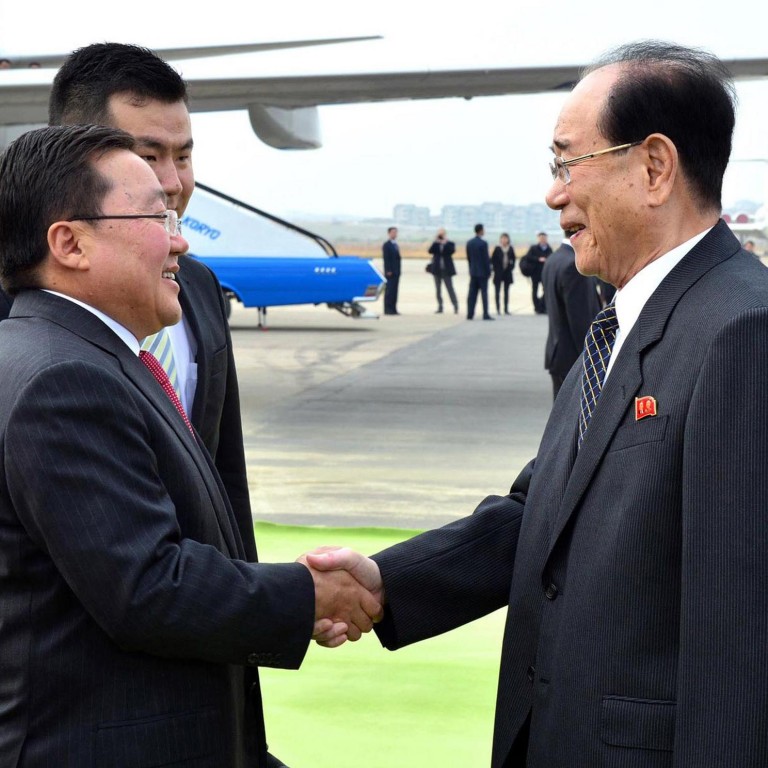
Soviet-era allies Mongolia and North Korea renew embrace
Mongolian president's visit to North Korea raises possibility of greater trade co-operation between the two, both heavily dependent on China
North Korea and Mongolia have signed a series of agreements to raise co-operation in a move that could help ease the two former Soviet allies' economic reliance on China.
The agreements were signed when Mongolian president Tsakhia Elbegdorj arrived in Pyongyang to become the first head of state to visit since Kim Jong-un became supreme leader in December 2011.
The accords covered industry, agriculture, sports, culture and tourism, the official Korean Central News Agency said, without providing details.
"North Korea and Mongolia are particularly reliant on China," Charles Krusekopf, head of the American Centre for Mongolian Studies, said.
"Mongolia is looking for outlets to the sea to export minerals, coal and energy resources. There are a lot of people talking about potential for Mongolian resources to be shipped through North Korea."
North Korea has been reaching out to friendly nations such as Mongolia and Indonesia as international sanctions over its nuclear weapons programme have hurt the economy.
In June, HBOil, an oil trading and refining company in Ulan Bator, said it acquired a 20 per cent stake in the Sungri refinery in North Korea's northeastern free trade zone of Rason.
Sungri had a refining capacity of two million tonnes a year and was connected to the Russian railway systems, HBOil said. In September, Russia completed a 54 kilometre rail link between Khasan in its southeast and a rebuilt North Korean port in Rason.
"I am sure that the Korean people will successfully achieve prosperity and progress of the country, their happiness and regional peace and stability in close co-operation with the international community," KCNA reported Elbegdorj saying at an official banquet in Pyongyang.
In September last year, after meeting the visiting chief of North Korea's parliament, Elbegdorj pledged to help the new North Korean leader pursue economic reform, offering his nation's experience of moving toward capitalism.
North Korea and Mongolia first set up diplomatic relations in 1948, the year North Korea was founded.
The relationship between the two countries dates back to 1939 when North Korean founder Kim Il-sung joined Mongolian-Soviet forces in fighting the Japanese, Song Byeong-gu, a professor of Mongolian studies at Dankook University outside Seoul, wrote in a paper in April.
North Korea cut its ties in protest when then-South Korean president Kim Dae-jung visited Mongolia in 1999.
The sides re-established ties when North Korea's foreign minister visited Mongolia in 2002.
Mongolia saw a better security situation if it maintained neutral relations with both Koreas and major powers such as China, Russia, Japan and the United States, Song wrote.
